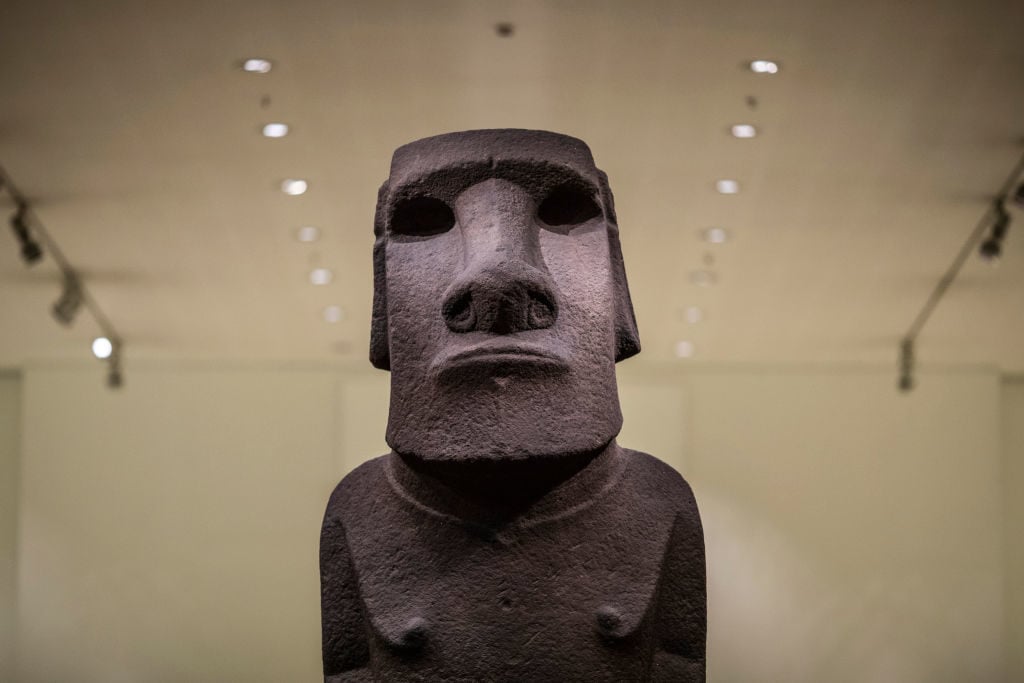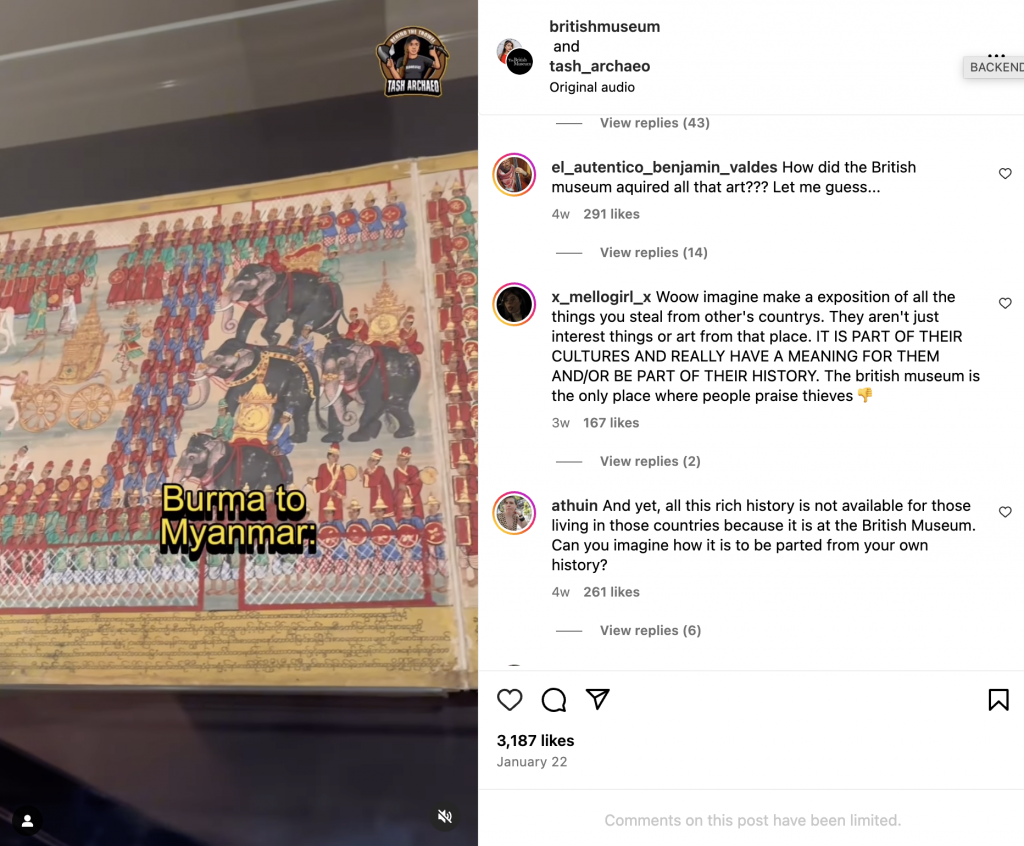Law & Politics
The British Museum’s Instagram Is Flooded With Calls for the Return of an Easter Island Statue
In response, the museum has limited comments on its Instagram posts.

In response, the museum has limited comments on its Instagram posts.

Adam Schrader

Critics swarmed the Instagram account of the British Museum over the weekend, calling for the return of Hoa Hakananai’a, a statue from Easter Island. The campaign led the institution to censor its own posts.
The floodgates on the British Museum’s account were opened when Mike Milfort, a Haitian-Chilean social media influencer, encouraged his followers to join him in calls to return the basalt statues to Easter Island, from which it was taken without permission in 1868.
“Museum of the stolen art,” one person commented on a British Museum post. Others shared the phrase “Devuelvan el moai” or “give the moai back.”
The British Museum has long faced calls to return looted items and objects with questionable provenance on its social media posts, with the phrase “give it back” appearing on posts about items from Greece, India and Egypt, among others. But the latest campaign to have the moai returned has been particularly strong, with critics calling for the return of the statue on posts more than a year old.

A screen shot of a January 22 post on the British Museum’s Instagram account, featuring calls for restitution, with comments limited. Photo: @britishmuseum on Instagram.
Initially, the British Museum told CNN that comments were only limited on one post as of February 19. However, by the next day, it seemingly limited comments on all posts on its account as the campaign spread.
“Comments were only deactivated on one social media post,” a museum spokesperson said in an email. Artnet News has asked for further clarification as comments remain limited on seemingly all posts. “We welcome debate, but this has to be balanced against the need for safeguarding considerations, especially where young people are concerned.”
The museum spokesperson also cited the British Museum Act of 1963, which prevents it from removing objects from its collection even if those artifacts were stolen from other countries.
The latest calls for restitution reached top political levels in January, when Chilean President Gabriel Boric expressed support for the campaign in an interview with Radio Chiloé, urging, “let the English give us back the moai.” Earlier, in 2018, the island’s former governor Tarita Alarcón Rapu had asked the museum to return the statues.
“The moai are deeply significant for the people of Rapa Nui, and their calls for repatriation have been ongoing for decades,” Freya Samuel, a museum decolonization and digital engagement consultant, told the Art Newspaper. “There really is no question as to where these statues belong, but as expected, the British Museum refuses to engage in meaningful discussions around repatriation and have effectively censored Mike Milfort’s followers by restricting comments.”